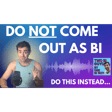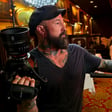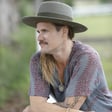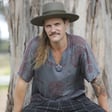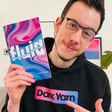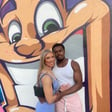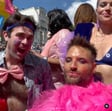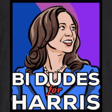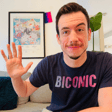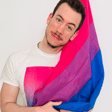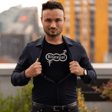
Bi+ Representation in LGBT+ Charity with Dominic Arnall
We're all aware of the unfortunate statistics showing that the bisexual community receives a tiny minority of LGBT+ charity resources despite making up a majority of the community itself. But how does that play out and what does it actually mean for Bi+ people?
We chatted about that and more with Dominic Arnall, CEO of “Just Like Us” (an LGBT+ young people’s charity) and the only out bisexual man running a queer charity in the UK. He explained what happens when the “B” is neglected in the non-profit space, why we need resources that are dedicated specifically to the Bi+/fluid community (and for kids especially), and what those programs might look like if they were properly funded and prioritized.
We also discussed the current political climate and the targeting of trans kids, why the “B” & “T” communities are intertwined and benefit by standing up for each other, and how queerness and gender are evolving and being viewed by young people today. We also touched on Dominic’s own bisexual journey, how his marriage and child have intersected with his queerness, and things to consider when coming out as Bi+ in the workplace.
Follow Dominic on Twitter: https://twitter.com/Dominicarnall
Follow Just Like Us on Twitter: https://twitter.com/justlikeusUK
Support Just Like Us: www.justlikeus.org
Two Bi Guys is produced and edited by Rob Cohen
Created by Rob Cohen and Alex Boyd
Logo art by Kaitlin Weinman
Music by Ross Mintzer
We are supported by The Gotham
Made on Zencastr #MadeOnZencastr
Use my special link zen.ai/twobiguys1 and use twobiguys1 to save 30% off your first three months of Zencastr professional. #madeonzencastr
This podcast is sponsored by BetterHelp. Visit betterhelp.com/twobiguys to get 10% off your first month.
We're going on a Bi+ trip to Maine in June 2023! Join the email list to get all the info: https://my.trovatrip.com/public/l/survey/rob-cohen
